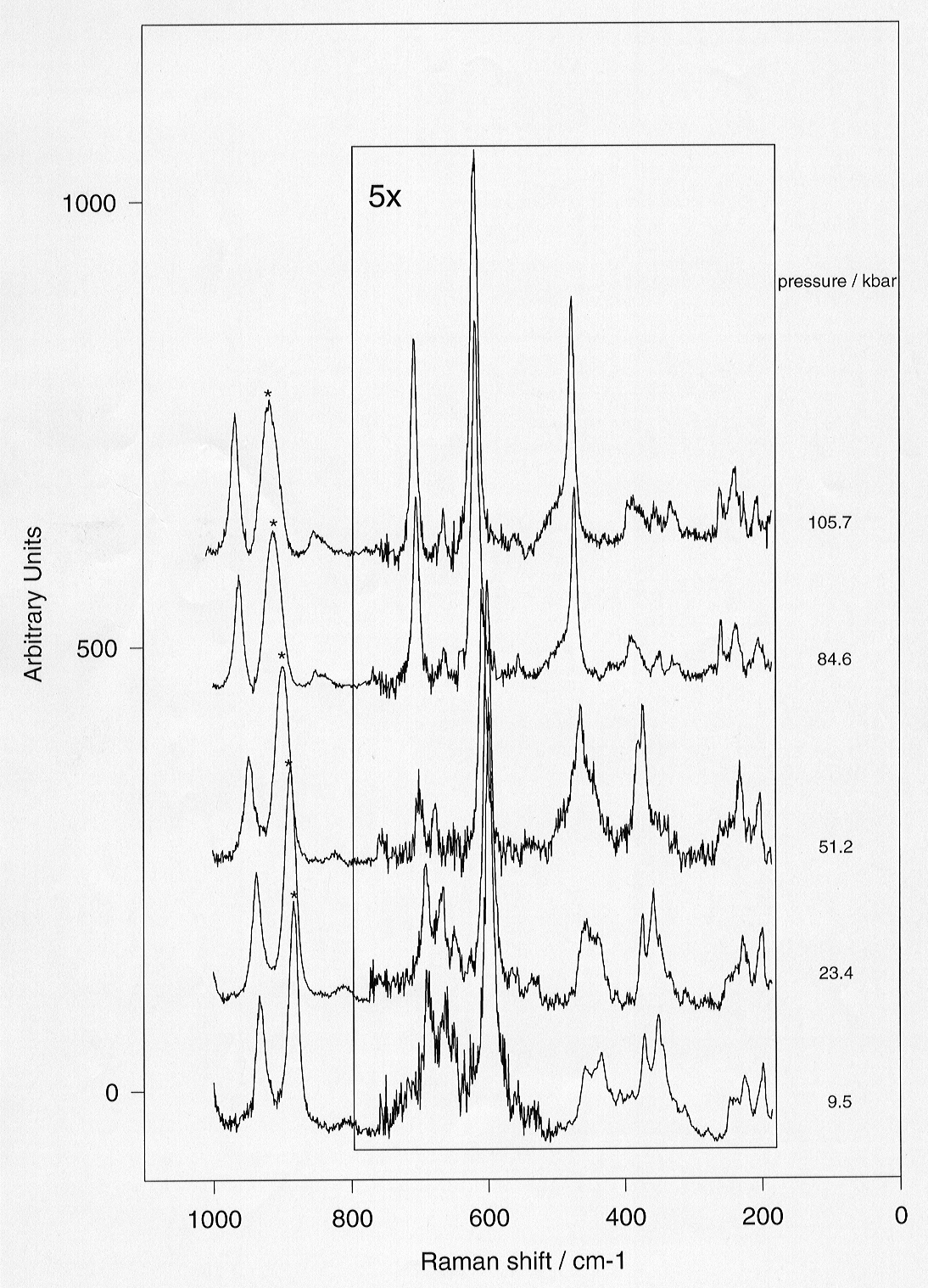

Garnets rich in the majorite (MgSiO3) component are
a major constituent of the transition zone of the Earth´s mantle.
While these garnets are tetragonal at ambient conditions, they may have
different symmetry at high pressures and temperatures. We have therefore
measured the Raman spectra of two synthetic non-cubic garnets rich in the
MgSiO3 component in a diamond-anvil cell to pressures in excess
of 200 kbars at room temperature. Sample 1 was pure MgSiO3 majorite,
sample 2 was a solid solution consisting of 93.41 mol% MgSiO3
and 6.59 mol% Mg3Al2(SiO4)3.
Although the X-ray patterns of both samples could be indexed assuming tetragonal
symmetry, the possibility that sample 2 may be orthorhombic cannot be completely
ruled out. High pressure Raman spectra of sample 1 show a continuous shift
of all bands to higher frequency with increasing pressure; no indications
of any phase transition were seen. Sample 2, however, undergoes a phase
transition between 51 and 85 kbars upon compression (see Fig. 3.4-4); this
phase transition is perfectly reversible between 54 and 38 kbars upon decompression.
In the frequency range between 300 and 800 cm-1, several bands
that are present in the low-pressure phase disappear from the high-pressure
spectra while some of the remaining bands show increases in intensity.
The high-pressure spectrum of sample 2 at 189.2 kbar is very similar to
the room pressure spectrum of sample 1. The observed changes at pressure
could be a due to symmetry change from an orthorhombic to a tetragonal
space group.
 |
Fig. 3.4-4: High-pressure Raman spectra of a majorite rich garnet (sample 2, Majorite 93.4 mol% - Pyrope 6.6 mol%). Note the distinct changes of the spectrum between 51 and 84 kbars, indicative of a phase transition. (* denote peaks of the pressure medium) |

Tel: +49-(0) 921 55 3700 / 3766, Fax: +49-(0) 921 55 3769, E-mail: bayerisches.geoinstitut(at)uni-bayreuth.de
 Previous page
Previous page